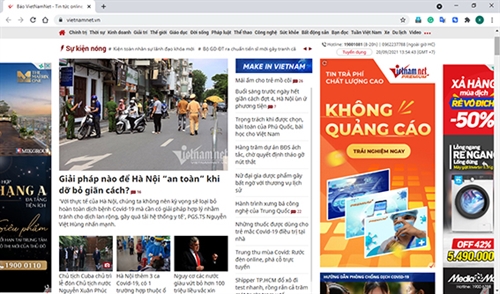Nguyen Thu Trang
Hanoi Law University
Secured transactions play a vital role in securing the legitimate interests and reducing risks between the parties in transactions. Security assets are an important part of secured transactions. They are governed by Civil Code 91/2015/QH13 dated November 24, 2015 (the Civil Code), Government Decree 21 dated March 19, 2021, guiding the implementation of the Civil Code’s provisions on secured transactions (Decree 21) and other relevant legal texts. This article is confined to provide an overview of the current laws and regulations on security assets, focusing on new points of Decree 21.
General principles governing security assets
Concept of security assets
The Civil Code and its implementing texts do not specify the concept of “security assets”. Instead, they specify conditions under which an asset can become security assets.
Its Article 295, by the method of listing, provides three conditions for an object to become a security asset including “ownership”, “identifiability” and “value”. These requirements are regulated in greater detail in Chapter 2 of Decree 21. These are the “sufficient conditions”.
- Ownership
Security assets must still be under the ownership, management or use rights of the securing party. Only two secured transactions are excluded, namely liens and title reservation.
For those two exceptions, security assets are not necessarily under the ownership of the securing party. For a lien, property which is the subject of a bilateral contract, does not need to be owned by the obligor. For example, a garage owner may exercise a lien over a car not owned by the person who has asked him to repair it in case that person fails to pay repair costs.
As for title reservation, in this relationship, the seller is the party that has the interest being secured - in the capacity as the secured party. Meanwhile, the sold property is still owned by the seller - the secured party. Therefore, the Civil Code excludes the principle that secured assets must be under the securing party’s ownership with reserved ownership rights.
- Identifiability
In fact, general description means that it is impossible to concretize that type of asset, because it has not been formed. Therefore, identification is necessary so as to have a mechanism for proper handling of that asset when a problem arises in realizing security assets.
Besides, identifiability of security assets is required when the security is registered. Article 9 of Decree 21 details this identifiability requirement for each type of security assets.
Firstly, Article 9.2 of Decree 21 provides: “If the security property is an immovable property or a movable property, which must be registered in accordance with law, the description under the agreement must be consistent with the information on the certificate.”.
This is a condition to ensure the accuracy of information on security assets. It ensures that the obligee will be able to realize the right property when the obligor fails to fulfill their obligation. As a result, it prevents invalidation of the contract due to the security assets not being that provided under the agreement of parties (i.e. the security agreement).
Secondly, Article 9.3 of Decree 21 provides: “If the security property is a property right, the information described under the agreement must include the name and legal basis in which the property right arises.”. Due to the fact that property right is intangible asset, in some circumstances, the description may not be detailed as much as the security assets above.
- Value
Usually, the value of security assets must be greater than that of the secured obligation. Thus, proceeds from the sale of security assets are sufficient to pay other financial obligations such as expenses incurred in taking care of and preserving the property. This provision is consistent with the principle of freedom of contract of the civil law, that the parties have the right to agree on contents of the contract as well as the security value for the obligation to be performed in the secured transaction.
 |
| Secretary General of the Vietnam Banks Association Nguyen Quoc Hung (standing) speaks at a talk discussing legal issues concerning credit contracts and security assets in Ho Chi Minh City on Mar. 26__Photo: Hua Chung/VNA |
Type of security assets
Security assets can be classified by the following four ways:
- Existing assets and future assets
Future assets are those that are not formed yet or are owned by the securing party after the secured obligation arises or after secured transaction is entered into.
Regarding the use of assets formed in the future as security assets, Article 24 of Decree 21 provides for two additional main issues. The first issue is secured parties’ rights for parts or all of security assets that are future assets from the point of time when parts or all of security assets are formed. The second issue is the regulation of effect against a third individual of security measure in form of future assets.
- Tangible assets and intangible assets
- Immovable assets and movable assets
- Forms of security based on types of secured assets
Legal framework governing security assets being real property
Land use rights
About conditions for land use rights to be charged, the chargor has the right to charge land use rights if their land satisfy the conditions specified in Article 188 of Land Law 45/2013/QH13 (the Land Law): (i) the land has a land use rights certificate (except for the person who inherits the land use rights when all conditions are met for land use right certificate); (ii) the land is not the subject of a dispute at the time the bank accepts the charge (the purpose is to prevent the risk for the bank and create a legal basis for future recovery of the loan in case the borrower fails to pay the debt as agreed); (iii) the land use rights are not seized in order to guarantee enforcement of a judgment; and (iv) the land is still in its land use term.
In addition, the Land Law sets out specific rules about what types of land use rights capable of being charged and what types of land use rights incapable of being charged. It also related to the chargee.
Houses
Houses are classified according to the time of building, completion and putting into use. Therefore, they are divided into:
- Existing houses
- Future houses
Article 148.1 of the Housing Law specifies conditions of charging a future house: (i) where a developer charges a part or the whole of a housing project, there must be the project file, the approved technical design of the project, and the single land certificate or land allocation or lease decision of the competent state agency; (ii) where a developer charges the house to be formed in the future constructed under a project, in addition to the mentioned above, the house to be charged must have had its foundation completed in accordance with the construction law and must not be included in the part of the project or the whole project that has been charged by the developer mentioned above; and (iii) an organization or individual charging the house mentioned in Article 147.2 of this Law must have documents proving lawful residential land use rights in accordance with the land law; and a construction permit, if required.
Other construction works
- Housing projects
- Other constructions to be formed in the future
Other commonly used security assets
In fact, there are five common types of movable assets that can be used as security as analyzed below:
Monetary deposits at banks
Article 13 of Decree 21 provides: “Valuable papers, stocks, and deposit account balances at credit institutions and foreign bank branches may be used to secure the performance of obligations but the description of the secured assets must be in accordance with the provision of applicable laws to valuable papers, stocks and deposit accounts.”.
As mentioned above, Decree 21 considers deposit account balances as a security asset. Such balances as intangible assets may only be charged.
Another advantage of this security is that, in principle, the order of priority for payment between chargees will be determined according to the charge registration order (Articles 319.2 and 308.1 of the Civil Code). Charge of cash deposits can be registered under Articles 6.7(c) and (d) of Circular 08/2018/TT-BTP dated June 20, 2018, guiding registration of, and provision of information about, security interests and contracts, and exchange of information about security interests registration with centers for registrations of transactions and assets of the national registration agency for secured transactions affiliated to the Ministry of Justice (Circular 08). Thus, in case of charge, credit institutions that have registered their charge first will have the right to be paid before subsequent or unregistered credit institutions. This provisions is a reasonable and satisfactory approach, increasingly popular in advanced legal systems.
Cars
Cars are movable assets and satisfy all legal requirements to become security assets in pledge and charge. In fact, when a car participates in a secured transaction, the credit institution may accept the pledge of car because it is safer but since the pledgor may not be able to use the car, it is not what he desires in borrowing money from the bank. When charging cars, charge will keep the original transport registration certificate through the term of the charge contract if the parties so agree (Article 320.1 of the Civil Code).
In fact, if the chargee cannot keep the original transport registration, it will be a risk. Although it is still protected by law, the chargee will still have to take a high risk because the security asset being the car can be moved around the country, even abroad. Thus, it is not easy to manage it. Even when the chargee keeps the original vehicle registration, it is still very difficult to manage and take over the security asset on enforcement. In fact, the control of a vehicle to comply with the regulations on registration certificate is still very limited. So cars can still be circulated for many years even without the originals or copies of vehicle registrations.
Receivables
Receivables are a type of property right arising between two entities being parties to a civil transaction, including the obligor and the obligee to pay the debt. The charge has the following characteristics: (i) the charge is a method of securing a loan, so it does not exist independently and is always associated with an obligation. It is the borrower’s obligation to pay the debt to the lender; (ii) the characteristic of the loan term based on the charge of receivable: loans secured by receivables have a relatively special term compared to loans secured by other assets.
Although it is always regarded as the most typical type of proprietary right, receivables does not appear in the concept of proprietary right in the Civil Code. It is only included in the regulations on sale and purchase of proprietary rights (Article 450 of the Civil Code). This legal document does not have a specific provision on the charge of receivables. This made this type of property more difficult to charge before the enactment of Decree 21. However, Decree 21 does not provide in detail how to enforce security over receivables.
Contractual rights
Article 14 of Decree 21 recognizes contractual rights as security. Meanwhile, Article 6.7 of Circular 08 provides a list of rights arising from contracts used as security assets. Points b and c of this Clause provide for proprietary rights arising from the contract, including:
- Proprietary rights arising from a shipbuilding lease; the right to compensate for damage arising from the contract of purchase and sale of aircraft and ships; the right to enjoy insurance under the insurance contract for aircraft and seagoing ships.
- Proprietary rights being debt claims, payment claims, compensations for damage, entitlements to insurance benefits arising from housing sale and purchase contracts, housing project capital contribution contracts, etc.
In sum, the rights arising from the listed contracts are only the rights arising from real estate contracts and the rights arising from aircraft or seagoing vessel contracts. In fact, the secured creditor is willing to receive many rights arising from other types of contracts, such as rights arising from capital transfer contracts, management contracts, licensing contracts, or contract to supply goods and services, etc. In addition, Circular 08 does not provide a clear distinction between the right to claim debts and the rights arising from contracts. Furthermore, even for real estate contracts, the above list omits proprietary rights arising from future house sale and purchase contracts.
Circulating assets
Under Article 19 of Decree 21, description of this special type of property follows the principle that secured property may be “generally describable but must be identifiable” (the second condition of security assets). Circulating asset is identifiable by its value and type. It is really special from other assets. If the amount of circulating assets taken as security assets is too large to count, the obligation will be calculated based on the value of these security assets. If the circulating asset is a particular asset, the value will be confirmed, based on the type of the circulating asset. Besides, there are two kinds of circulating assets stipulated: circulating assets in warehouses and circulating assets participating in the process of production and business.
The charge of circulating assets is provided in Article 321.4 of the Civil Code under which the chargor has the right “To sell, replace or exchange charged property being goods rotating during the production and business process. In this case, the right to demand that the purchaser pay money, the proceeds received, the assets formed from the proceeds received or substituted or exchanged assets shall form the charged property. When a warehouse is charged, the chargor may substitute goods in the warehouse but must ensure the value of the goods in the warehouse remains the value agreed.”.
It should be noted that Article 321.4 of the Civil Code recognizes that property formed from the proceeds received becomes security assets. Since money is generic object, it is also difficult to determine whether a certain asset must be purchased from the proceeds of the sale of circulating goods. It is particularly relevant when the chargor is an enterprise that has many different types of income and some assets. In case the purchased assets are land use rights, it should be noted that when they are charged, the charge contract must be notarized or authenticated and registered to take effect between the parties and have enforceable against third parties (Articles 167.3 and 188.3 of the Land Law). Therefore, the chargor can sell or change security assets at any time without having to obtain the consent of the chargee.
Article 321.4 of the Civil Code addresses the right to sell, replace or exchange charged property being goods rotating during the production and business process, but it does not provide for the obligation to notify the chargee. Therefore, the provisions allow the chargor to sell the security assets. This also means that the buyer of the security assets is always protected.-









